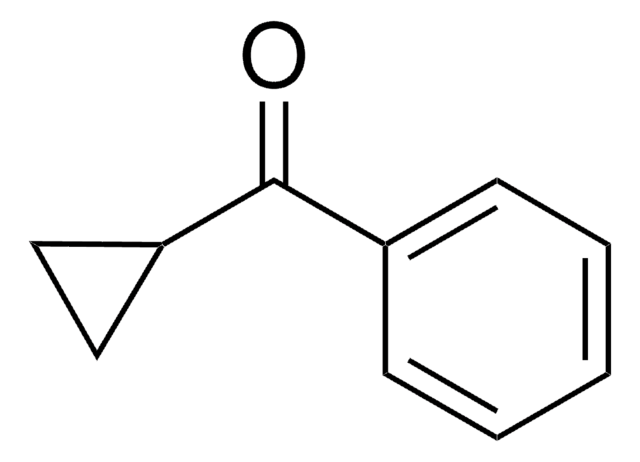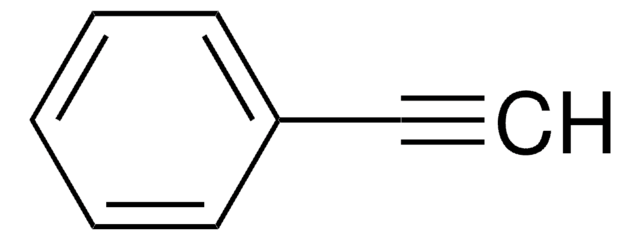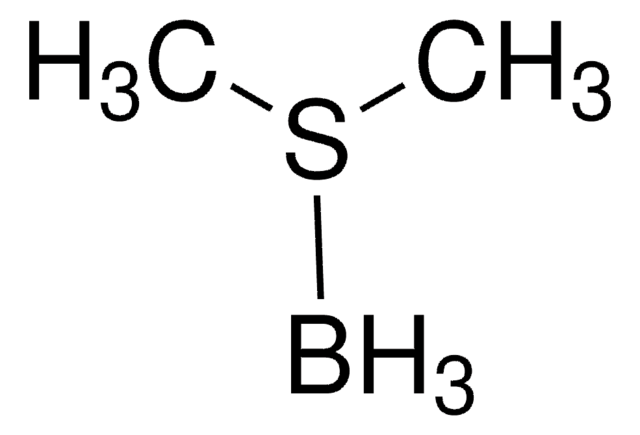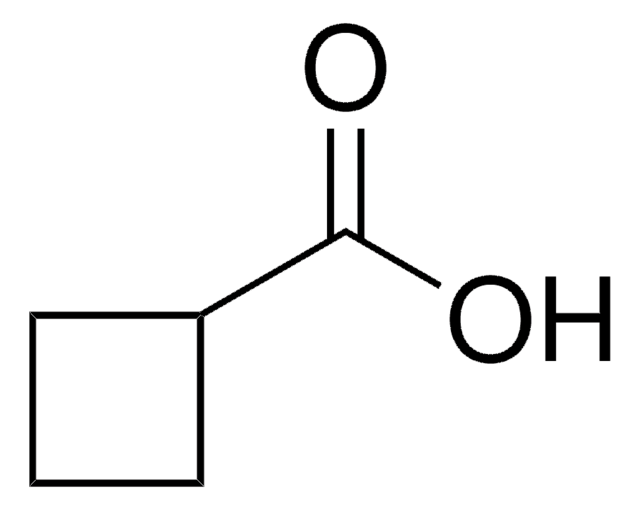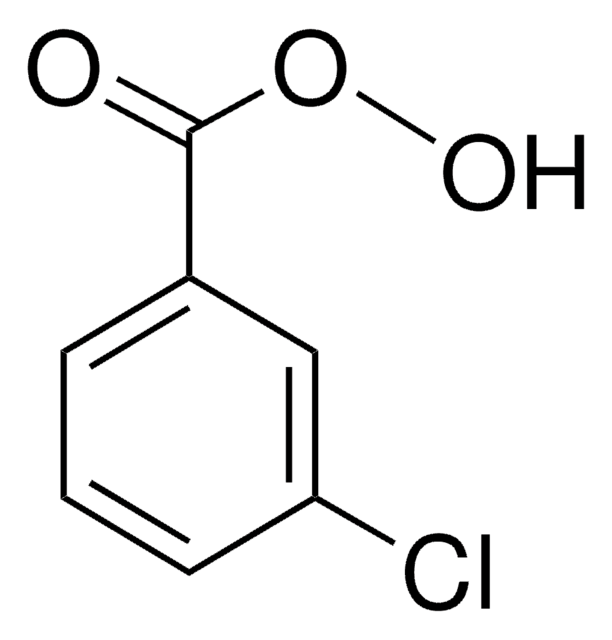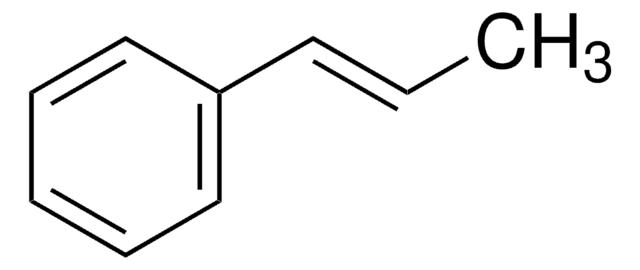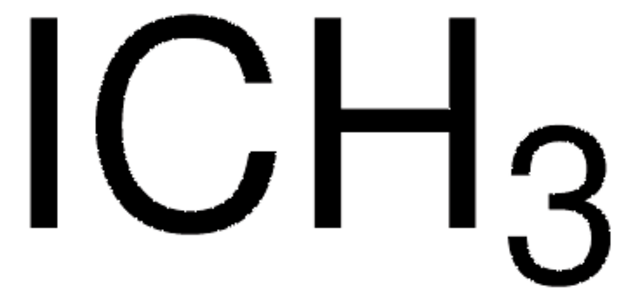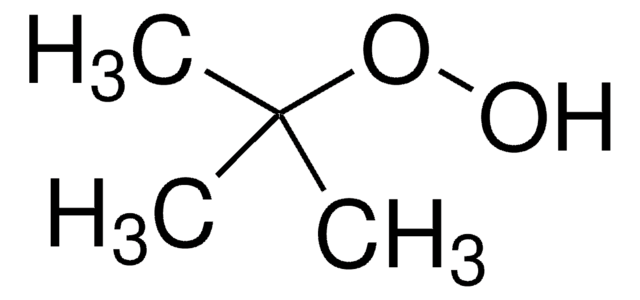158011
Cyclopropylbenzene
97%
Synonyme(s) :
Phenylcyclopropane
About This Item
Produits recommandés
Pureté
97%
Forme
liquid
Indice de réfraction
n20/D 1.533 (lit.)
Point d'ébullition
173.6 °C/753 mmHg (lit.)
Densité
0.94 g/mL at 25 °C (lit.)
Chaîne SMILES
C1CC1c2ccccc2
InChI
1S/C9H10/c1-2-4-8(5-3-1)9-6-7-9/h1-5,9H,6-7H2
Clé InChI
VFSFCYAQBIPUSL-UHFFFAOYSA-N
Catégories apparentées
Description générale
Mention d'avertissement
Warning
Mentions de danger
Classification des risques
Flam. Liq. 3
Code de la classe de stockage
3 - Flammable liquids
Classe de danger pour l'eau (WGK)
WGK 3
Point d'éclair (°F)
111.2 °F - closed cup
Point d'éclair (°C)
44 °C - closed cup
Équipement de protection individuelle
Eyeshields, Faceshields, Gloves, type ABEK (EN14387) respirator filter
Certificats d'analyse (COA)
Recherchez un Certificats d'analyse (COA) en saisissant le numéro de lot du produit. Les numéros de lot figurent sur l'étiquette du produit après les mots "Lot" ou "Batch".
Déjà en possession de ce produit ?
Retrouvez la documentation relative aux produits que vous avez récemment achetés dans la Bibliothèque de documents.
Notre équipe de scientifiques dispose d'une expérience dans tous les secteurs de la recherche, notamment en sciences de la vie, science des matériaux, synthèse chimique, chromatographie, analyse et dans de nombreux autres domaines..
Contacter notre Service technique